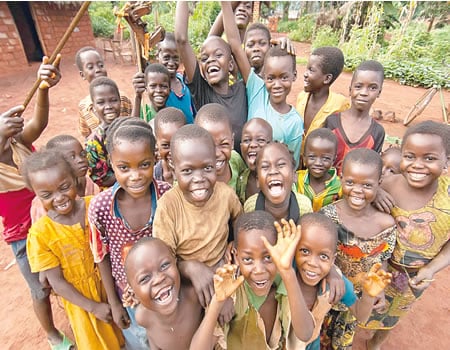Because human rights belong to each person, one may hastily pontificate that child rights are subsumed in human rights. Although, children are human beings, human rights are insufficient protection for the array of child-specific vulnerabilities. Until a person is able to fully fend for himself, he may be marginalized by society.
Children abound ever so more, without adequate protective laws in Nigeria. By twin universal metrics – The Convention on the Rights of the Child (CRC) and The African Union Charter on the Rights and Welfare of the Child (CRCW), Nigeria lags behind in passable protection laws for children.
Across northern Nigeria, various children are termed Almajiris. Almajiri was a name for young Islamic scholars but the name now substitutes for beggars, urchins, who restlessly loiter by roadsides. Many northern states are yet to domesticate the Child Rights Act (CRA).
BREAKING: Obasanjo, 393 others escape plane crash
Two kinds of disasters: natural or man-made may bedevil a nation. However, all over the world, there is an agreeable consensus over the ability of laws to maintain social equilibrium and curb fiery crimes, which may arise from a failed man-made system or human intent such as Boko Haram, herdsmen crises, armed banditry and similar other menaces as currently rampaging Nigeria.
Yet, only a few believe in proactive laws that can shape decency in and pivot children to fulfill potentials. It is in this category of “few” that Nigeria finds itself.
The provisions of Chapter IV (Sections 33 – 46) of the 1999 Constitution pertain to fundamental human rights and are available for the Nigerian child. However, there are no specific child rights provisions in the constitution. In fact, all through the Constitution a “child” is not defined.
This is the major problem with the Child Rights Act: Child rights protection fall under residual list and is within the purview of state governments to legislate upon. In order for the CRA to have effect at state levels, state governments are expected to internalize the provisions of the CRA into their local laws.
Many Northern states like Bauchi, Yobe, Kano, Sokoto, Adamawa, Borno, Zamfara, Gombe, Katsina, Kebbi, and Jigawa are yet to enact the Child Rights Law largely due to political, religious and cultural reasons.
The Child Rights Law is not only in the best interest of the Nigerian child but also all Nigerians. In Kano, one of the states which are yet to enact the Child Rights Law, within 72 hours, the government altered an 800 year-old history and modified its emirate system. The same energy could be directed to implement the Child Rights Law.
If “children are the future”, more efforts are needed to ensure the survival, growth and development of the child in order to protect our future.
Tope Akinyode,
topeakinyode2@gmail.com






